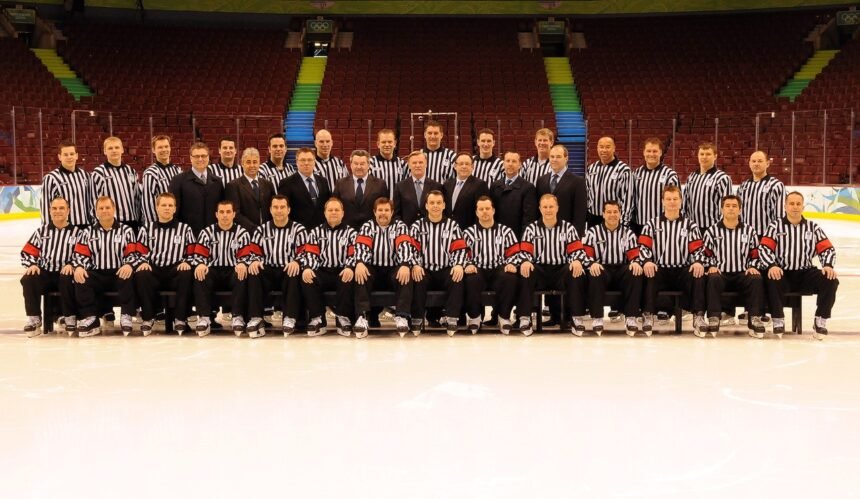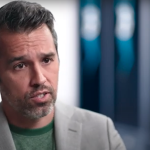The 2026 Milano Cortina Olympics will once again feature blended on-ice officials’ crews as was the case when NHL players previously participated in the Games. Referees and linesmen from the IIHF and NHL will work side by side to provide the best possible experience for the players under international rules. It is a program that started in 1998 and was successfully used through the 2014 Olympics, and now that NHLers are returning, so, too, are officials.
“We are delighted that the top NHL players will be part of the upcoming Olympic Games,” said Danny Kurmann, the IIHF’s Officiating Manager, who also refereed in three Olympics during the first blended era. “In partnership with NHL officials, we are committed to ensuring the best possible conditions for these hockey players. We expect an invaluable exchange of experience and knowledge, both on and off the ice, not just for this tournament but for future IIHF events as well.”
Any time, however, that two different crews come together, there is a period of adjustment, and that’s why the “blending” will start next month, half a year away from the first game of the Olympics. All on-ice officials will gather in Buffalo, New York, to meet, train, and work together in preparation for Milano Cortina.
“We are starting from a foundation of solid experience, but it is crucial to fine-tune the details and address the subtle differences in game management,” Kurmann explained. “The Olympic Games are officiated according to the IIHF rulebook, which closely aligns with the NHL’s rulebook. But our goal is to ensure consistent philosophy and interpretation across both leagues, so there will be discussions and training focused on these points. Team building is also a big part of our mini-camp in August—getting to know each other, building trust, and preparing together as a unified group. It’s all important to the end goal, which is to produce seamless officiating next February.”
Something that fans might not realize, and officials do, is that there is an adjustment for everyone to make. Yes, NHL and IIHF rules are close, and, yes, those same NHL stars we watch on TV are the same ones playing at the Olympics, but there are differences that need to be accounted for.
“While games at the World Championships and in the NHL are similar, the physicality is particularly heightened in the NHL playoffs,” Kurmann continued. “We need to adapt and make sure we’re accurately judging that intensity. Everyone wants fast, physical, and entertaining play, and we aim to facilitate that. At the same time, we need to ensure that technically skilled players have the freedom to showcase their abilities and that referees can identify and address any play outside the rule book that prevents that from happening.”
Although the concept of “blended” means assigning officials from both sides of the Atlantic to games, it does not necessarily mean there will be one IIHF referee and one NHL referee and one and one of linesmen for every game. There is still the element of “feel” and game-by-game assessment to ensure the best men are handling each game.
“Our primary goal is to assign officials based on their performance,” Kurmann confirms. “The assignments are carefully discussed by a small committee to ensure that the best-suited referees are chosen for each game. Performance, not just origin, is the key factor in these decisions.”
From the IIHF side, evaluations started two years ago when Kurmann and his team started sending the best game officials to top tournaments under the IIHF’s “Road to Milano” program.
“Together with our officiating coaches,” Kurmann explains, “we have closely monitored and evaluated their performances these last two years, sometimes working alongside NHL coaches for clarity and continuity. After the most recent World Championship in Sweden and Denmark in May, we selected the referees and linespeople for the Olympics based on the best performances in that tournament as well as at the 2024 World Championship in Czechia, and the 2025 World Juniors in Canada.”
All this talk about blended crews is exciting, but the Olympics comes only once every four years. The IIHF World Championship is annual, and there are many NHL officials not working each May. Is there a chance of blended crews at the WM?
“Increasing cooperation with the NHL is certainly our goal,” Kurmann agrees. “However, there are some logistical challenges, such as contractual and insurance issues, that we would need to address for that to happen. And we must also remember that we have a wealth of talented game officials in Europe and Asia who are eager to get opportunities to officiate at the next Olympic Games in 2030. It’s important to provide them a chance to showcase their skills as well.”
Kurmann works daily from his IIHF office to know all officials and their abilities, but he in part relies on his vast experience from his “playing days” as a referee. His resume is nothing short of exemplary: ten Men’s Worlds, including a gold-medal game in 1999; six World Juniors, including three gold-medal assignments; and, three Olympics with NHL players and blended officiating.
“From my own experience, I can say that working with the NHL at the Olympics was incredibly rewarding. It wasn’t just about working together on the ice – it was the camaraderie off the ice that made it special. We all worked hard to give our best, and the personal connections we built were invaluable. Every time we meet again, it feels like no time has passed.”
That feeling he had at the time, and now, looking back, is what he hopes the crew of 2026 experiences.
“It was truly unique,” he enthused. “The atmosphere of the Olympic Games, officiating the world’s best players, and collaborating with top-level referees. One of the most memorable aspects for me was to work with NHL officials I had only ever seen on TV. They were incredibly down-to-earth, and it was inspiring to see how genuinely great they were, not only as officials but as sportspeople. It was an unforgettable experience both on and off the ice.”










